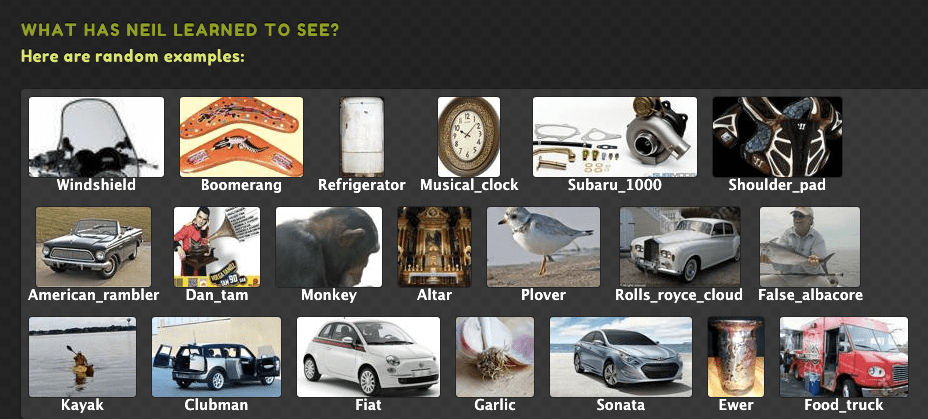Computers With Common Sense Possible Thanks To The Never Ending Image Learner
What researchers from Carnegie Mellon University have achieved is truly remarkable. A step towards building computers that have common sense has become a reality thanks to NEIL or Never Ending Image Learner, a computer program developed by a group of researchers from this university. What it does is search the internet for pictures and label them appropriately on its own. Their website describes NEIL as a program running on computer that runs 24 hours per day and 7 days per week to automatically extract visual knowledge from Internet data. The tagline goes - "I crawl. I see. I learn." - much like how human kids would learn common sense. It all started with a vision to build the world’s largest visual knowledge base with minimum human labeling effort and has been successful so far in its efforts. The people behind this project are - Xinlei Chen, Abhinav Shrivastava and Abhinav Gupta of Carnegie Mellon University who are working with funding received from the Office of Naval Research and Google.
Imagine this - How does a computer know what a car looks like? How does it know sheep are white? Can a computer learn all these just by browsing images on the Internet? - Well, it is all possible with common sense, which has now made its way in our computers. NEIL uses current advancements in computer vision that enable computer programmes to identify and label objects in images, to characterize scenes and to recognize attributes, such as colours, lighting and materials, all with a minimum of human supervision. To list the statistics, we now know that NEIL has already analyzed around three million images, identifying 1,500 types of objects in half a million images and 1,200 types of scenes in hundreds of thousands of images.

By looking at pictures stored on the web the program is attempting to extract not only objects but their relationships, and from these the underlying concepts. "Images are the best way to learn visual properties," said Abhinav Gupta, assistant research professor in Carnegie Mellon's Robotics Institute. He further added, "Images also include a lot of common sense information about the world. People learn this by themselves and, with NEIL, we hope that computers will do so as well." The program however does mistakes too. It may think that the search term "pink" relates to the pop star rather than the colour because an image search would be more likely to return this result. To prevent the program from committing such error, humans will still need to be part of the program's learning process, according to Abhinav Shrivastava, a PhD student working on the project.
The project is yet to cross a lot of hurdles, but is a true winner in the artificial intelligence or AI arena. NEIL's intelligence or the common sense will only grows in sophistication as it is exposed to newer and newer images. What do you think about NEIL or the Never Ending Image Learner - Share with us in comments.
Source: #-Link-Snipped-#
Imagine this - How does a computer know what a car looks like? How does it know sheep are white? Can a computer learn all these just by browsing images on the Internet? - Well, it is all possible with common sense, which has now made its way in our computers. NEIL uses current advancements in computer vision that enable computer programmes to identify and label objects in images, to characterize scenes and to recognize attributes, such as colours, lighting and materials, all with a minimum of human supervision. To list the statistics, we now know that NEIL has already analyzed around three million images, identifying 1,500 types of objects in half a million images and 1,200 types of scenes in hundreds of thousands of images.

By looking at pictures stored on the web the program is attempting to extract not only objects but their relationships, and from these the underlying concepts. "Images are the best way to learn visual properties," said Abhinav Gupta, assistant research professor in Carnegie Mellon's Robotics Institute. He further added, "Images also include a lot of common sense information about the world. People learn this by themselves and, with NEIL, we hope that computers will do so as well." The program however does mistakes too. It may think that the search term "pink" relates to the pop star rather than the colour because an image search would be more likely to return this result. To prevent the program from committing such error, humans will still need to be part of the program's learning process, according to Abhinav Shrivastava, a PhD student working on the project.
The project is yet to cross a lot of hurdles, but is a true winner in the artificial intelligence or AI arena. NEIL's intelligence or the common sense will only grows in sophistication as it is exposed to newer and newer images. What do you think about NEIL or the Never Ending Image Learner - Share with us in comments.
Source: #-Link-Snipped-#
0
